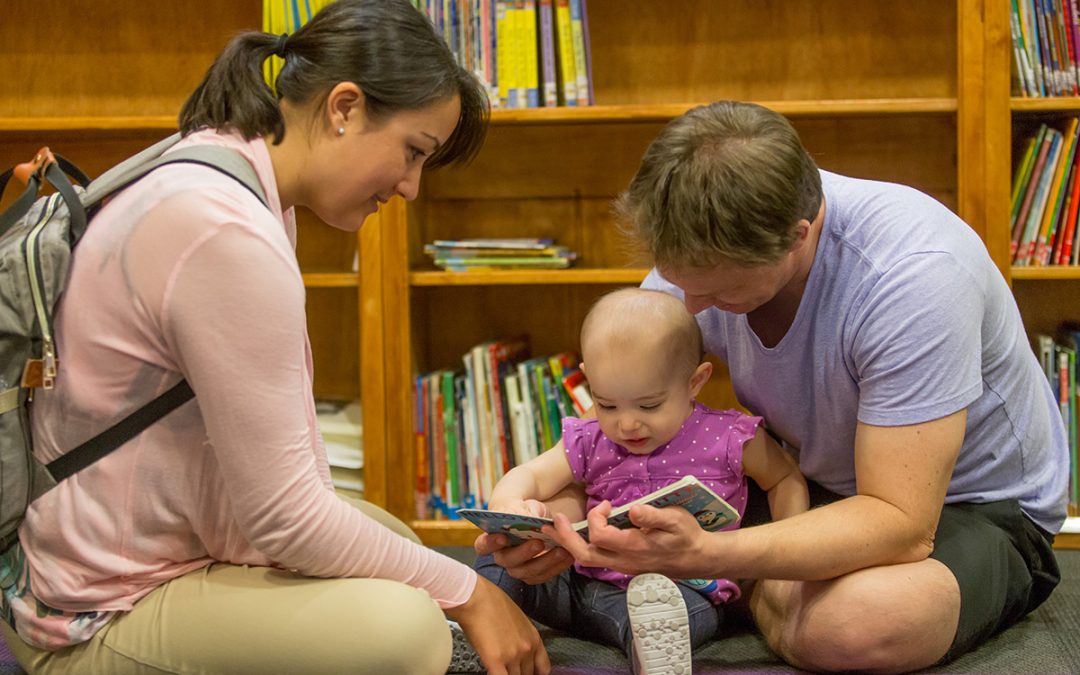One of the most important indicators of a child’s academic success is the size of their vocabulary around age five. Begin building your child’s literacy skills with an early emphasis on language development. Moving from letters and sounds, to words and their meanings, exposing your child to a broad range of sophisticated vocabulary from the start increases their cognitive and social development for years to come. This week follow along with us as we discuss the different types of language and how to best support your little one in their speech development.
Language development is a natural process. As your child is exposed to words and sounds, their rapidly growing brains connect meaning and understanding to what they observe. There are three main types of language we use; receptive and expressive language. Receptive language are words that your child hears and understands. Expressive language encompasses words that your child speaks to voice their thoughts, needs and wants, develop first. As your little one becomes more aware of different social settings and situations, they develop their use of Pragmatic language, a vocabulary set for specific situations with specific context.
Providing your little one with many well-crafted opportunities to not only develop her language skills but to expand her vocabulary while doing so, enables your little one to think, write, and discuss more academic topics. As the size of her vocabulary grows, so does her critical thinking skills and her ability to draw complex meaning from her worldly observations. The more intention we, as parents and educators, place on developing a sophisticated vocabulary, the greater academic success our little ones will experience.
Support your little one’s vocabulary and knowledge expansion today with these tips and set them on a path for strong language and literacy skills.
Read Frequently
No matter what age your child is, reading together boasts many concrete benefits for your child’s development. Read to your child, point to words and pictures, and ask them questions throughout. Build your relationship together as you adventure through meaningful story times. Whenever possible, read together daily and talk about the themes you notice. Offer a wide variety of books from different topics, perspectives, and cultures. Notice new words and highlight their meaning.
Use and Encourage Academic Language
Provide natural and authentic opportunities for conversation with your little one. Use age appropriate language but refrain from “baby talk”. Instead expose your child to sophisticated words by describing what you observe and experience throughout the day. Notice the flowers in the yard blooming? Talk with your child about how plants grow and change. Introduce your little one to disciplinary specific language, by teaching her about her about photosynthesis and pollination.
For more ideas and activities to promote speech and language development with your child, be sure to check out our Pretend City Play at Home Guide. Here you will find ways to play with purpose today.

